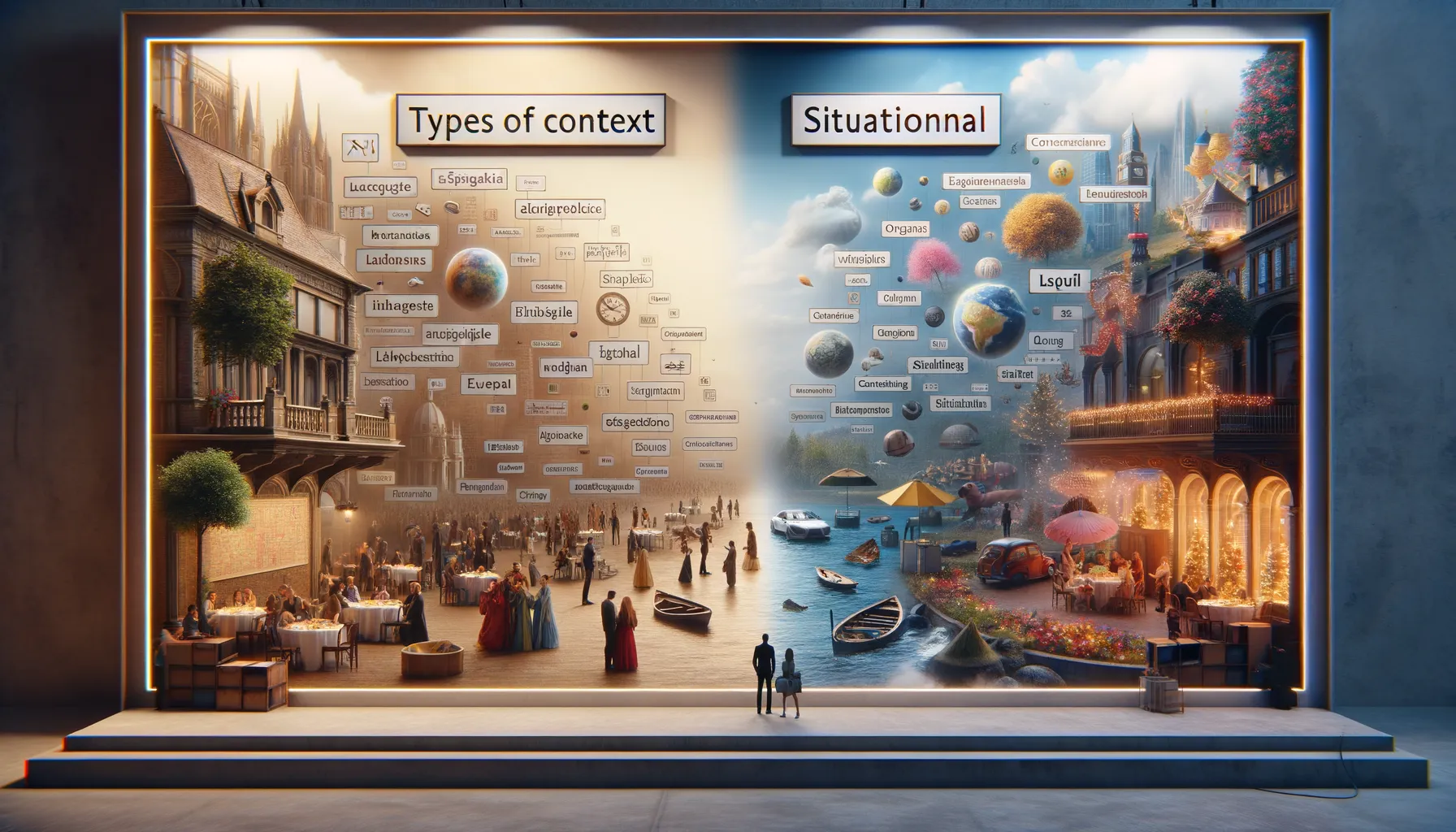Why Context Matters in Language Learning
The Power of Context in Making Words Come Alive
Imagine you’re holding a puzzle piece in your hand. All alone, it’s just a strange shape with pretty colors, but slide it into the full picture, and suddenly—it makes sense! That’s what learning vocabulary without context is like: fragmented, confusing, and incomplete. Context breathes life into language, transforming cold, disconnected words into vivid, meaningful expressions.
For instance, think about the word “bark.” Without context, it could mean the sound a dog makes or the outer layer of a tree. But when you hear, “The dog’s bark startled the mail carrier,” there’s no guessing left to do. Context clears up ambiguity and teaches you how words behave in the wild, not just in the safety of a textbook.
- Context gives clues about tone – is someone angry or joking?
- It reveals relationships – is this formal speech or casual chit-chat?
- It embeds culture – are we talking American football or British slang?
Words don’t exist in a vacuum; they’re part of a bustling ecosystem of sentences, emotions, and situations. And it’s within these ecosystems that true understanding happens.
How Context Helps in Vocabulary Retention

The Magic of Seeing Words Come to Life
Picture this: you’re reading a gripping story, and you stumble upon the word “serendipity.” Without even reaching for a dictionary, you sense its meaning. The character finds something wonderful by accident—a hidden treasure or an old friend. That context wraps the word in emotion, action, and understanding, making it stick in your mind like a melody you can’t forget.
Context doesn’t just show you what a word *means*. It lets you **feel** how it lives in the real world. Imagine learning the word “exquisite” without any connection—it’s like being handed a beautiful gift box, but never opening it! Now, hear someone describe the “exquisite taste” of chocolate melting on their tongue. Suddenly, the word is rich, vivid, alive.
- Reading phrases and sentences teaches nuances: Is “bold” a good thing or too much? Context decides.
- Repetition in different settings solidifies memory: A “jolly laugh” vs. a “jolly holiday.”
- Emotions tied to words help long-term recall: laughter, surprise, wonder—all anchors for your vocabulary bank.
Why Words Need Their Natural Habitat
Words are like wild animals—they don’t thrive in isolation. Take “ambiguous.” You see it on its own, and it’s abstract. But see it paired with phrases like “an ambiguous answer that left everyone puzzled”, and now you’re in the middle of the action, experiencing it alongside the characters or speakers.
When you learn new vocabulary, placing it in its “habitat” helps you better understand when, where, and how to use it. Think about idioms like “spill the beans.” Without context, it sounds bizarre. But picture someone whispering secrets at a dinner table—you’ve got the image, the setting, the story! And that makes all the difference.
Types of Context: Linguistic and Situational

What Is Linguistic Context All About?
Imagine dissecting a sentence like a detective at a crime scene. Every word holds a clue, but the real breakthrough comes when you consider the broader picture—the *linguistic context*. This means understanding how words around a specific term shape its meaning. For example, think about the word “bank”. Without surrounding words, it’s a mystery: is it a riverside or a financial institution? But pair it with phrases like “deposit a check” or “flowing water”, and voilà! The fog clears.
Linguistic context also involves grammar and sentence structure. Let’s say you stumble on the phrase “running late.” You immediately know it’s about time, not physical jogging. Why? Because your brain reads the whole sentence like a symphony, not isolated notes.
- Collocations: Words that naturally “hang out” together, like “strong coffee” instead of “powerful coffee.”
- Word order: In English, “red car” versus “car red” makes all the difference.
The Magic of Situational Context
Now, let’s take this outside the text—literally. Situational context is where words come alive in the world. Picture this: someone says “It’s cold in here.” Are they making a simple observation, or subtly asking you to close the window? It all depends on the situation—who’s speaking, where you are, and even what season it is.
Here’s another one. If someone announces “I saw a bat last night,” are we talking about baseball or wildlife? The answer lies in knowing whether they were hanging out in a park or watching the shadows in their attic.
Situational context is rich with clues: tone of voice, body language, time of day. Missing these signals would be like watching a movie with the sound off—you’d lose so much of the story!
Strategies to Leverage Context for Better Understanding

Immersing Yourself in Authentic Contexts
Do you know what turns a word from just scribbles on a page into something alive? It’s *context*! Think about the difference between “bright” meaning intelligent and “bright” describing the sun. Without context, you’re playing a guessing game! The trick to better understanding vocabulary is to immerse yourself in as many *authentic scenarios* as possible—real-life situations where words breathe.
Dive into TV shows, podcasts, or books where words naturally interact with emotions, gestures, and settings. A character might say, “I’m stuffed,” after eating too much at Thanksgiving dinner, and suddenly, you *feel* the meaning instead of memorizing it.
To supercharge your learning:
- Follow online communities (like Reddit!) where native speakers type organically.
- Keep an eye on everyday labels, like menus or street signs, and connect them to their surroundings.
Creating Your Own Context Clues
Think Sherlock Holmes—curious, observant, always piecing together evidence. You can “investigate” words by creating your own mental associations. For example, if you see “soar” alongside “sales” and “success,” imagine a graph climbing high into the sky. Or, pair unfamiliar words with experiences: the word “tranquil” could stick when tied to a memory of a peaceful beach. These personal connections make vocabulary unforgettable.
Examples of Context in Vocabulary Development

Diving into Real-Life Contexts
Picture this: You’re strolling through a bustling street market in London, and someone describes a particular dish as “scrumptious.” At first, you might not fully grasp the word, but the savory smells wafting your way and the delighted smiles on people’s faces make it impossible to miss the sense of sheer deliciousness. That’s the magic of context – it paints the meaning for you without needing a dictionary.
Here are some everyday examples where context works its charm in vocabulary building:
- Situational cues: Watching a movie set in a courtroom teaches words like “verdict” or “objection” because the drama makes their meanings unforgettable.
- Emotional resonance: Hearing a friend exclaim, “I’m gutted!” after losing their wallet imparts an understanding of heartbreak far better than any textbook ever could.
- Tone and mood: In literature, when a storm is described as “ominous,” the dark skies, howling wind, and characters’ tense conversations give that word its weight.
When language comes alive through experience, words become part of your mental landscape, like beloved landmarks in a favorite city.





